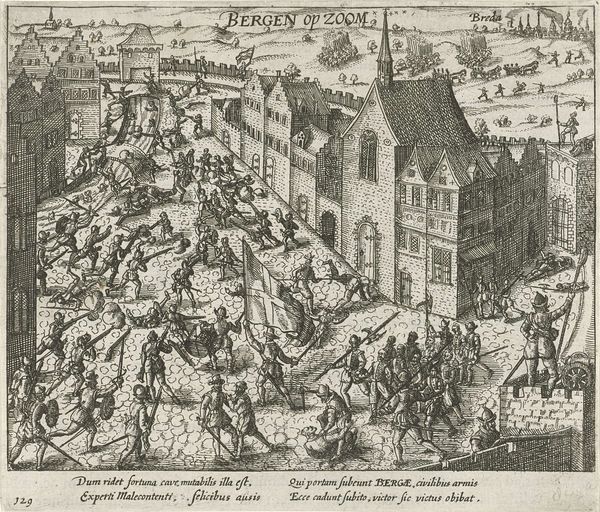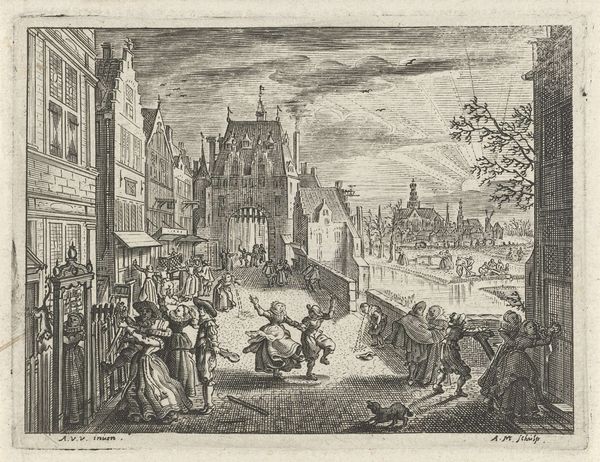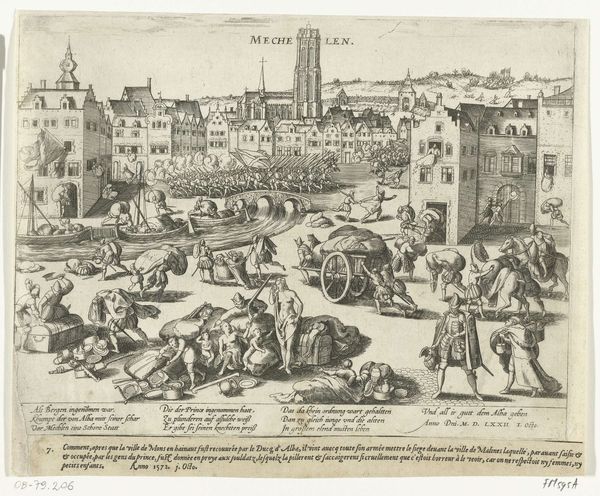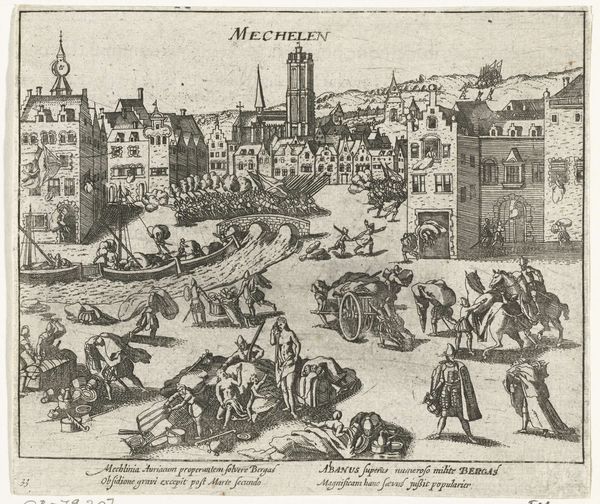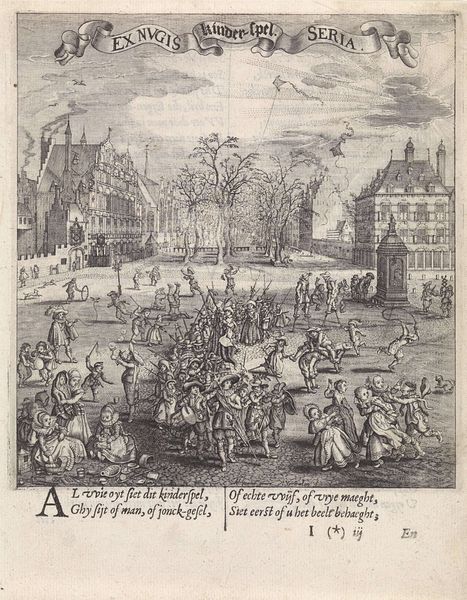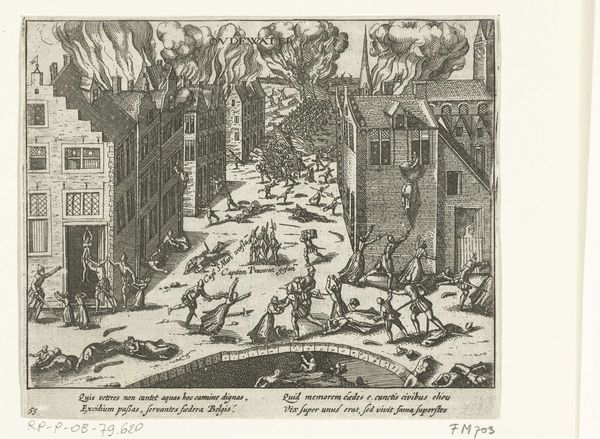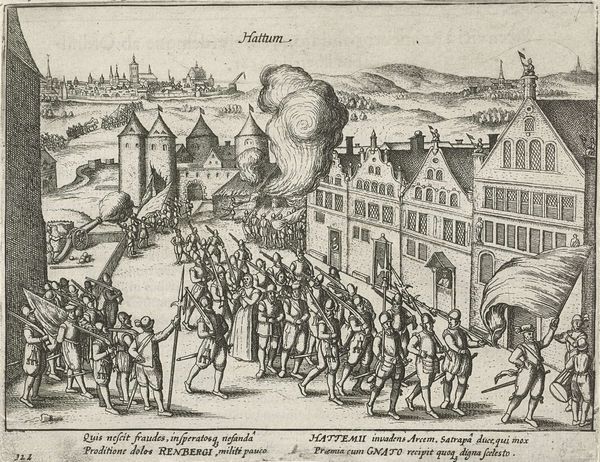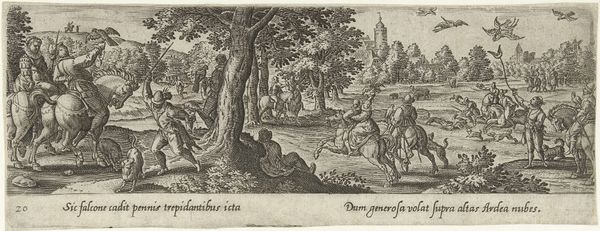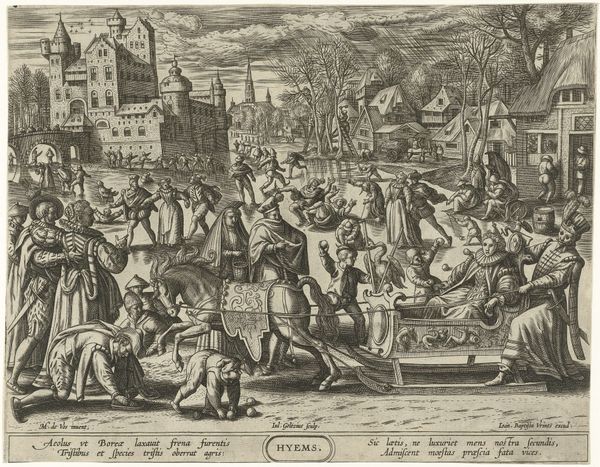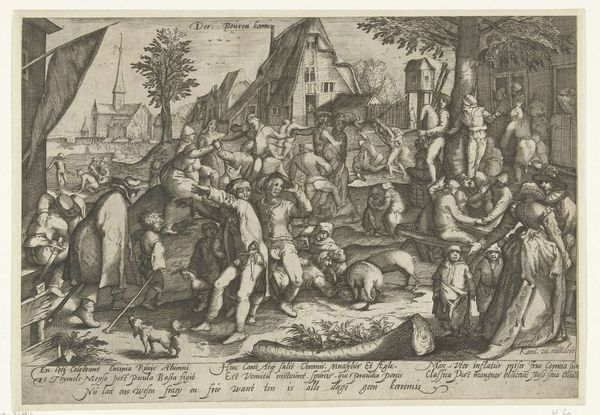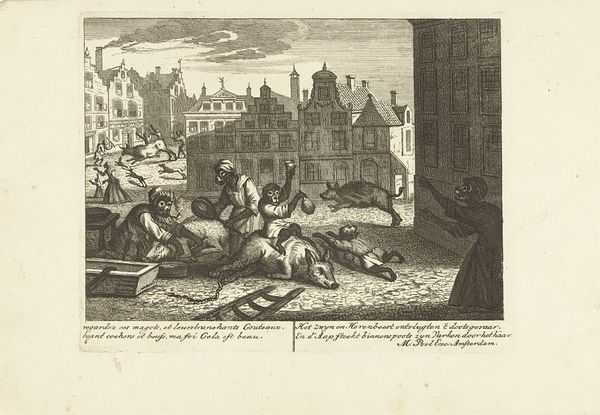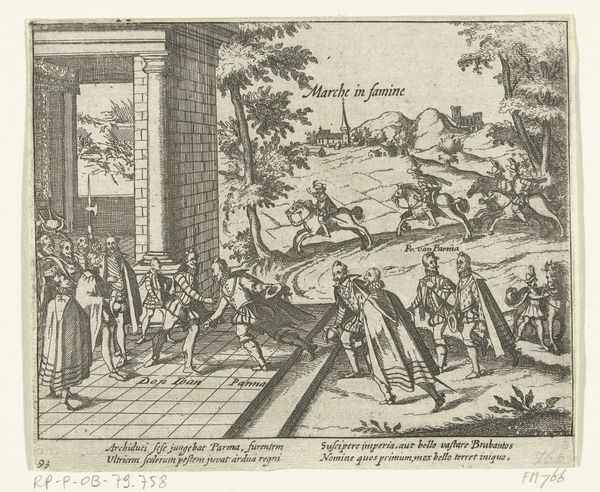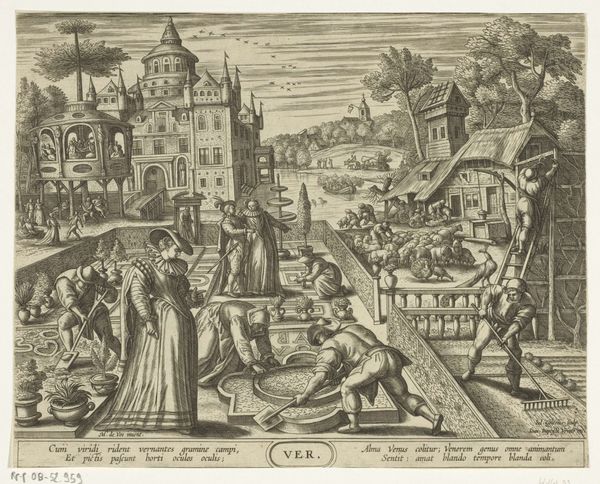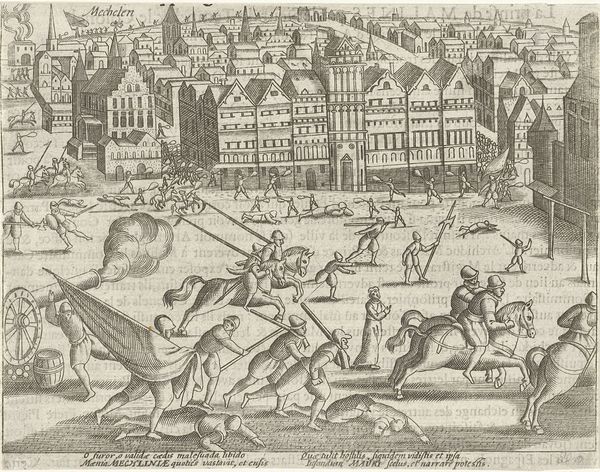
print, engraving
# print
#
cityscape
#
genre-painting
#
northern-renaissance
#
engraving
Dimensions: height 81 mm, width 215 mm
Copyright: Rijks Museum: Open Domain
Editor: Here we have Philips Galle's "Vleesmarkt," created sometime between 1582 and 1633. It's a busy Northern Renaissance cityscape rendered as an engraving. The detail is impressive, but it also feels a bit chaotic, maybe even violent. What stands out to you when you look at it? Curator: The market scene teems with symbols of both sustenance and mortality. The animal carcasses displayed are obvious reminders of our dependence on life taken, but look closer. Notice the architecture; it represents the enduring strength and stability of the city itself. It's a fascinating juxtaposition, isn't it? A bustling marketplace built upon the very real cycle of life and death. Editor: I see what you mean. It’s not just a simple snapshot of daily life. Does the composition – all those lines converging on the center – play a role in emphasizing this cycle? Curator: Absolutely. The linear perspective draws your eye to the center, where much of the butchering action happens. This intentional placement directs us to contemplate the transformation of living creatures into commodities. This action also takes place near the cross. Think about the religious connotations embedded in this choice. Editor: It's pretty striking, connecting the marketplace to larger themes. The architectural symbols with its chaos. And religious connotation right in the middle! This is clearly much more than a simple market scene. Curator: Precisely! Consider also, this scene immortalized as a print—mass-produced! It offered people far removed from the urban center a window into both the glories and grisliness of city life, solidifying certain visual archetypes for generations. Editor: Thank you, I never would have thought about that, it brings so much to it.
Comments
No comments
Be the first to comment and join the conversation on the ultimate creative platform.
